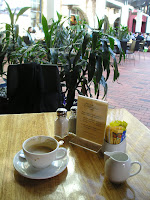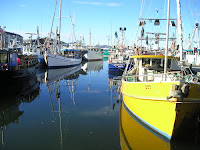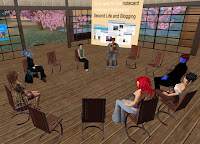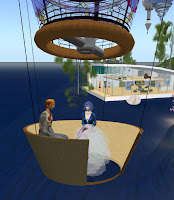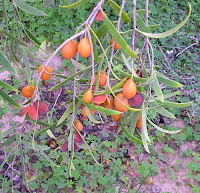 This is another catch-up post from conferences I've been to. This is one from the Lifelong Learning conference in Yeppoon, Australia, held in June 2008. Pam Barnett, Ruth Browne, Carol Hicks, Philomena Humphries and Felicity Renner's presentation described their initiative at the University of Western Australia to develop a strategy for information literacy. The UWA strategic directions statement on information literacy is here. The reference librarians at UWA developed a forum which:
This is another catch-up post from conferences I've been to. This is one from the Lifelong Learning conference in Yeppoon, Australia, held in June 2008. Pam Barnett, Ruth Browne, Carol Hicks, Philomena Humphries and Felicity Renner's presentation described their initiative at the University of Western Australia to develop a strategy for information literacy. The UWA strategic directions statement on information literacy is here. The reference librarians at UWA developed a forum which:- examined the literature & other developments by national associations etc.
- discussed the role of the librarian, particularly in rtelation to teaching
- different approaches to delivering IL education
They decided that an online approach was pragmatically a good approach to deal with the large number of students (material could be reused and it avoided time consuming face to face), and responding to students' liking of online.
Other aims had been equity of access and 24/7 - so online was seen as fitting with that. There are compulsory first year programmes ("IRIS"), the subject of another presentation at the conference.
A discussion document has been drawn up by the Forum, which is leading to an action plan for IL across the university. They aim to identify "best practice" guidelines; secondly they want access to information skills training for all students; and thirdly they want to develop material for postgraduates.
There is information on IRIS at http://www.arts.uwa.edu.au/for/students/iris
Photo by Sheila Webber: Rydges resort, Yeppoon, Australia where the conference was held.
You have read this article academic sector /
Australia /
Information Literacy /
strategy
with the title August 2008. You can bookmark this page URL http://monochromaticstyle.blogspot.com/2008/08/uwa-il-strategy-development.html. Thanks!









